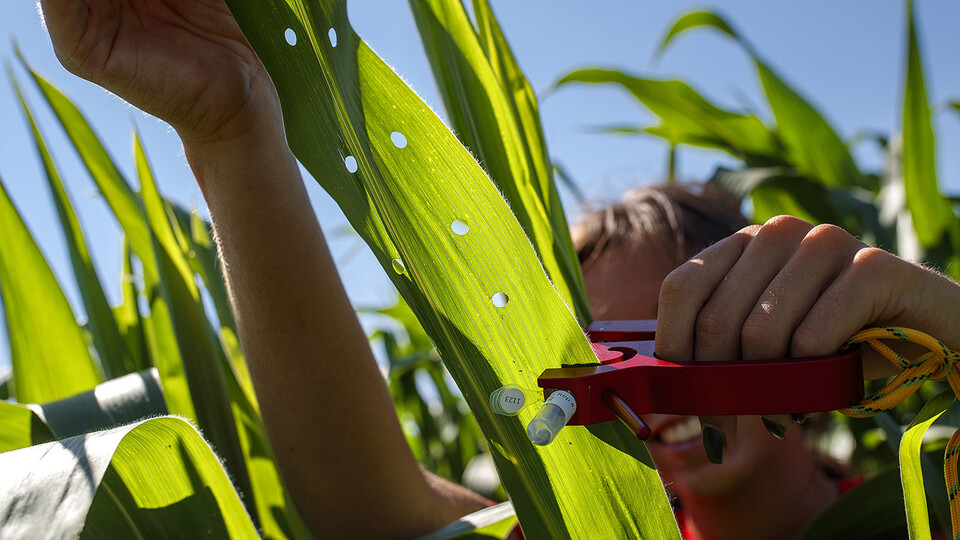
by Tiffany Lee | Research and Economic Development
The use of “digital twins,” virtual copies of physical objects and operations, is gaining steam across a wide range of industries. Updated constantly with real-time data, these virtual mirrors allow engineers to keep an eye on and predict traffic flow, retailers to optimize supply chains and railway operators to spot wear and tear on tracks. Researchers are even working toward digital twins of the human heart, which would let doctors diagnose, treat and monitor patients from afar.
AI Institute for Resilient Agriculture graphic
Until now, the technology had not been widely employed in agriculture, even as the world races to secure a sustainable food supply for a population on track to reach nearly 10 billion by 2050. Today, the National Science Foundation and U.S. Department of Agriculture’s National Institute of Food and Agriculture announced a five-year, $20 million grant to establish the AI Institute for Resilient Agriculture, or AIIRA. It’s part of a $200 million federal effort to develop artificial intelligence hubs that address a variety of national needs.
A collaboration of eight institutions — including the University of Nebraska–Lincoln and led by Iowa State University — is launching the institute with the aim of deploying digital twins, powered by advances in artificial intelligence, throughout the agricultural space.
“In the tradition of USDA-NIFA investments, these new institutes leverage the scientific power of U.S. land-grant universities informed by close partnerships with farmers, producers, educators and innovators to provide sustainable crop production solutions and address these pressing societal challenges,” said Carrie Castille, USDA-NIFA director. “These innovation centers will speed our ability to meet the critical needs in the future agricultural workforce, providing equitable and fair market access, increasing nutrition security and providing tools for climate-smart agriculture.”
AIIRA was one of 11 NSF-led AI institutes announced July 29, which join seven that were launched in August 2020.
The AIIRA research team, which includes Husker plant geneticist James Schnable, believes the technology may help ramp up food production by enabling farmers to increase yields and plant breeders to strategically improve varieties. Schnable brings to the project Nebraska’s diverse geography, climate and soil — variations that are key to understanding how plants behave under different circumstances, including accelerating climate change and decreasing available cropland.
He will tap into the university’s Research and Extension Centers, which span the state from a site just outside of Lincoln to the Panhandle Research and Extension Center — located 400 miles to the west, at 2,700 feet higher in elevation and with only half of Lincoln’s precipitation — to grow, test and genetically analyze various corn and sorghum varieties during the project.
Read more:
https://news.unl.edu/newsrooms/today/article/husker-researcher-part-of-multi-university-effort-to-improve-ag-decision/